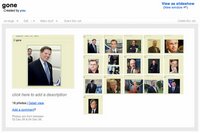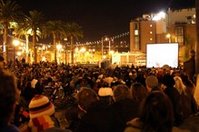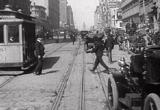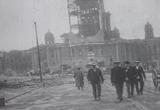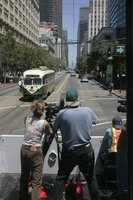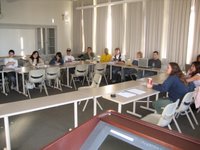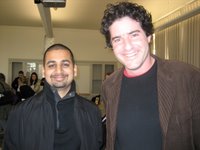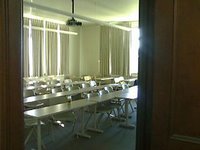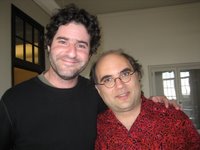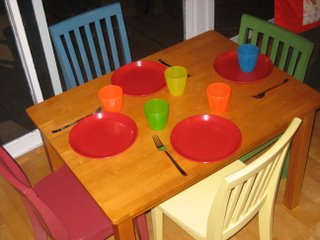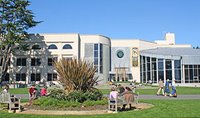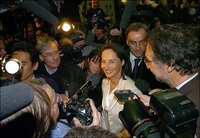this morning, i gave a breakfast keynote at the illinois school library media association's (or
ISLMA) annual conference. the title of the talk was "consumed young minds, creative young minds."
my talk covered nasty stuff (consumer culture, militarized culture) and exciting stuff (participatory culture, creative culture).
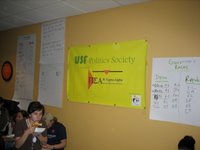
to introduce these two concepts, i began by describing
election night at USF. i told a brief story (better heard than read) that recounted how many of the students in attendance were in middle school in 2001 and how i tried to imagine what they thought when president bush followed september 11 by encouraging us to go shopping. next, i discussed how students used multiple media - laptops, cell phones, television - to follow the election, how they talked and debated about their findings, and how they created media (in the form of posters on walls) to update and share their findings. i think i may have mentioned that in a society which too often educates youth to be consumers, it sure feels inspiring to watch them become citizens.
having established the two themes - youth as consumers, youth as creators - i continued by discussing the
immersive consumer cultures within which today's youth swim. i began with (what else?)
america's next top model, a reality show that takes cross-media promotion and product placement to a whole new level. warning the audience that things would get worse before they got better, i introduced
america's army, a computer game ("the official US army game") that serves as a recruitment tool. i then showed
do something amazing, a youtube-like archive of "reality" video clips of everyday life (without the blood) of the US air force. (i didn't have time to talk about the
US air force's profile on myspace, nor was i able to talk about
intellipedia, but i was able to say that for the communities that lack access to technology, the US army was more than willing to bring the tech to the community: in the form of a
graffiti-clad, dj-riding, computer game-stacked hummer visiting a black or latino neighborhood near you.)
as a transition from consumer culture to participatory culture, i showed
a mashup of america's next top model. it was a nice way to introduce what
henry jenkins calls participatory culture. like
yesterday's workshop, i discussed the five elements of participatory culture:
- relatively low barriers to artistic expression and civic engagement;
- strong support for creating and sharing one's creations with others'
- some type of informal mentorship whereby what is known by the most experienced is passed along to novices;
- members believe that their contributions matter; and
- members feel some degree of social connection with one another (at the least they care what other people think about what they have created).
reading over these five elements to a ballroom full of librarians was an experience unlike anything i have witnessed: it was as if a huge collective bubble of BIG IDEAS AND BIG CONNECTIONS surfaced and it was at this point that i was reminded that no group understands collective intelligence better than librarians.
i finished the talk by tracing some possible intersections between participatory culture, school libraries, and ISLMA. i introduced a number of projects and ideas that are waiting to be projects, including student-annotated library catalogs and student reading mentorship programs. next, i called up wikipedia (which was met with a few groans!) and searched for the entry on ISLMA. nothing. i returned to jenkins' elements of participatory culture and asked the audience what would happen if ISMLA members collectively wrote the wikipedia entry for ISLMA? what kinds of negotiated knowledge would arise? what elements would be highlighted or glossed over?
in short, what happens when you collectively and publicly construct and negotiated knowledge?i finished with dvds. i acknowledged how frustrating it must be for librarians to see students walk in the library, walk past the stacks, and head straight for the dvds. at the same time, i remarked how interesting it is to note that many youth go beyond the main movie and watch the extras - the making of, director's commentary - which, to me, suggests a kind of research, a willingness to pursue secondary sources, and, most importantly, evidence of a sense that seems to be evaporating among too many of our students - curiosity. i ended with an idea i heard from a librarian at a one-day conference for jesuit university librarians (convened about two weeks ago at USF by librarian locke morrisey) - wouldn't it be great to set up a web 2.0 site that essentially says,
if you liked this dvd, you're gonna love these books.
it's a gamble. as new media becomes more and more integrated into the lives of our students, many of us are worried that basic literacy may suffer. at the same time, as scholars like jenkins argue (in "
confronting the challenges of participatory culture: media education for the 21st century"), reading and writing literacy is often the cornerstone of participatory cultures. regarding this last point, i am still uncertain, but i am certain that curiosity is something our students - not to mention ourselves - could use a lot more of, and fast. and i am certain that curious minds belong, grow, and thrive in libraries.
like always, my time management was lacking but as the talk ended and people began to file out of the ballroom i managed to remember to snap a few photos:

 update
update: i've learned of two new ISLMA-related wiki projects! the first is the
2006 ISLMA conference wiki which features, among other things, slides and notes from over two dozen conference presentations. the second is
bookbattle, a wiki set up by erin wyatt at highland middle school in libertyville and katie kirsch at lake bluff middle school.


 the bob dylan scrapbook, 1956-1966
the bob dylan scrapbook, 1956-1966






